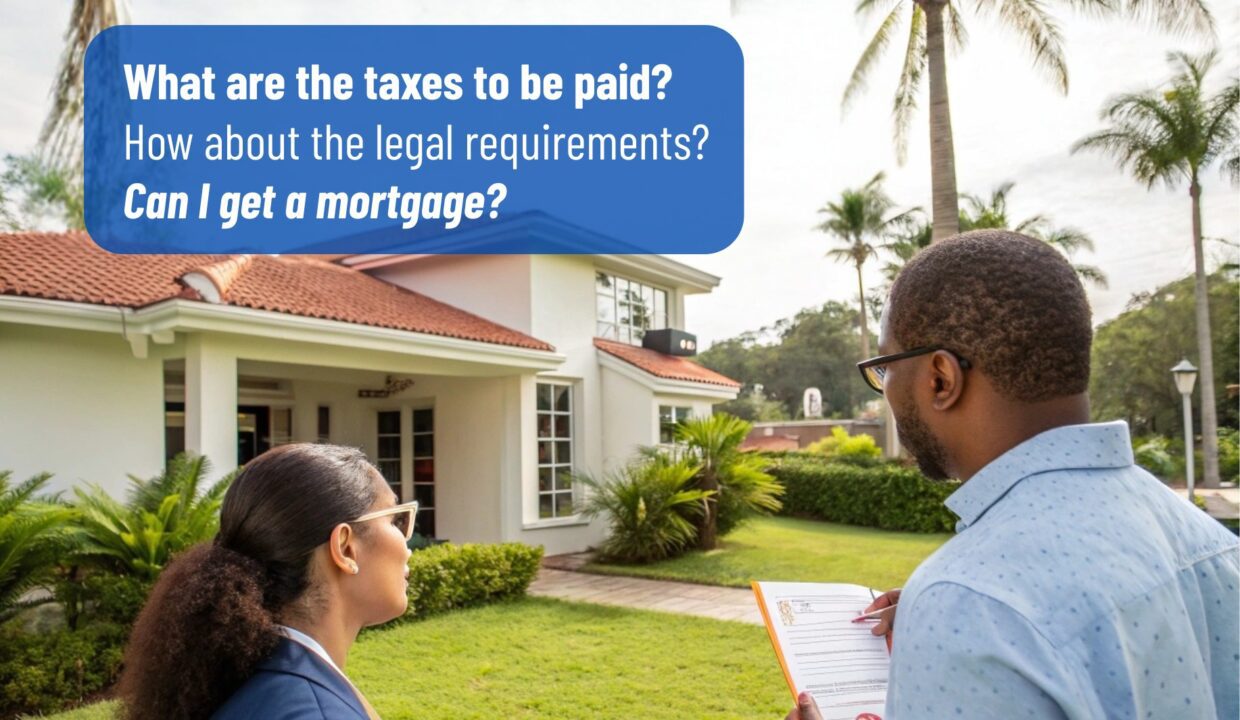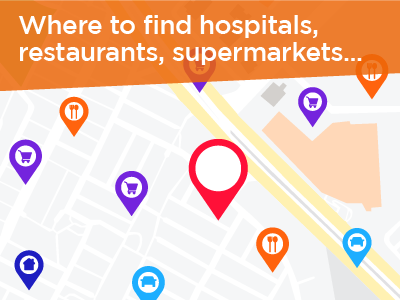
Your Questions About Buying Property in The Gambia, Answered by Gamrealty!
Dreaming of owning property in The Gambia? It’s an exciting step, and we know you’ll have questions. Gamrealty, one of Gambia’s leading real estate companies, answers the most asked questions to help you navigate the journey smoothly.
Getting Started & Finding Your Place
- Q: I’m thinking about buying property in The Gambia. Where do I even begin?
A: Welcome! The best place to start is by figuring out what you’re looking for. Are you after a holiday bolt-hole, a permanent home, or an investment? Knowing your purpose, desired location, and budget will help us narrow down the options. Have a chat with us, and we can guide you through the possibilities! - Q: Why should I choose Gamrealty to help me find property in The Gambia?
A: Great question! We have a deep understanding of the Gambian property market. We pride ourselves on clear communication, professional service, and helping you find a property that truly fits your needs. We’re here to make the process easier and more trustworthy for you. - Q: What areas in The Gambia are popular for property buyers?
A: There are many lovely areas, each with its charm! The coastal areas like Senegambia, Kololi, Brufut, and Bijilo are very popular due to their proximity to beaches and amenities. Further inland, you can find more land and different kinds of communities. We can help you explore different regions to see what feels right for you. - Q: What types of properties are typically available in The Gambia?
A: You’ll find a good variety! This includes plots of land if you want to build from scratch, bungalows, detached houses, villas, and apartments, particularly in more developed areas. - Q: How can I see the properties you have listed?
A: You can start by browsing our website www.gamrealty.com, where we list many available properties with photos and details. If something catches your eye, or you’d like us to suggest properties based on your criteria, just get in touch! We can arrange viewings for you. - Q: What if I can’t find exactly what I’m looking for on your website?
A: Don’t worry! Our website is a great starting point, but we often have access to properties that may not be publicly listed yet. Tell us your specific requirements, and we’ll do our best to find your perfect match. - Q: Can I buy land in The Gambia as a foreigner?
A: Yes. Foreigners can acquire land in The Gambia, usually under a leasehold agreement, commonly for 99 years. - Q: What’s the difference between freehold and leasehold?
A: With freehold, you own the property and the land indefinitely. Leasehold means you have the right to use the property for a fixed period (like 99 years). For many buyers, especially foreigners, leasehold is the common and secure way to own property long-term in The Gambia.
The Buying Process
- Q: What are the main steps involved in buying a property?
A: Once you’ve found a property, the main steps involve making an offer, conducting legal due diligence (checking the ownership and legal status), drafting and signing a sale agreement, making the payment, and finally, registering the property in your name at the Lands Office. - Q: How long does the whole buying process usually take?
A: The timeline can vary depending on the specifics of the property and the efficiency of the legal process. However, a straightforward transaction can often be completed within a few months, sometimes sooner. We’ll keep you updated on the progress. - Q: What is “due diligence” in the property buying process?
A: Due diligence is a crucial step where your lawyer verifies the legal ownership of the property, checks for any existing debts or disputes associated with it, and ensures all the documentation is authentic and in order. It’s about making sure you’re buying a problem-free property. - Q: Do I need to be in The Gambia for the entire buying process?
A: Not necessarily for the entire time. You’ll likely need to be present for initial viewings and potentially to sign some documents. However, with a power of attorney granted to your lawyer, they can handle many of the steps on your behalf if you need to be elsewhere. - Q: What is a sales agreement?
A: The sale agreement is a legally binding contract between you (the buyer) and the seller. It outlines the terms and conditions of the sale, including the purchase price, payment schedule, and completion date. Your lawyer will review and explain this to you before you sign. - Q: How is property ownership officially transferred in The Gambia?
A: The official transfer of ownership happens at the Lands Office. Once the sale agreement is in place and payments are made, the relevant documents are submitted for registration, and a new title deed or lease agreement is issued in your name.
Costs & Financing
- Q: What are the typical extra costs when buying property in The Gambia?
A: Besides the property price, you’ll need to budget for things like stamp duty (a government tax on the transaction), registration fees at the Lands Office, and legal fees for your lawyer’s services. Our agency fee is also a cost to consider. - Q: How much are the property purchase tax and registration fees?
A: These fees are set by the government and are usually calculated as a percentage of the property’s value or purchase price. The exact percentages can change, but we will provide you with the most current information during your buying process. - Q: What about legal fees? How much should I expect to pay for a lawyer?
A: Legal fees can vary depending on the complexity of the transaction and the lawyer’s fee structure. It’s always best to get a clear fee estimate from your chosen lawyer at the beginning. - Q: Can I get a mortgage in The Gambia as a foreigner?
A: Obtaining a mortgage as a foreigner can be challenging, but it is sometimes possible through local banks. The terms and requirements can be different from what you might be used to in other countries. Many foreign buyers opt to fund their purchase through personal savings or international financing. - Q: Are there any ongoing costs once I own a property?
A: Yes, like owning property anywhere, there will be ongoing costs such as property taxes (rates), utility bills (electricity, water), and potential maintenance costs. If you’re not living there full-time, you might also consider security or property management fees.
Living in The Gambia & Practicalities
- Q: Is The Gambia a safe place to live?
A: The Gambia is generally considered a safe and peaceful country with a reputation for being the “Smiling Coast” due to its friendly people. Like any country, it has areas with higher and lower crime rates, and it’s always wise to take standard safety precautions. - Q: What’s the climate like in The Gambia?
A: The Gambia has a tropical climate with a dry season (roughly November to May) and a rainy season (roughly June to October). It’s generally warm to hot year-round, with the dry season being particularly pleasant and sunny. - Q: What are the options for managing my property if I don’t live there full-time?
A: Many property owners who are not permanent residents hire property management services. These services can help with maintenance, cleaning, and even renting out your property if you wish to generate rental income. - Q: Can I rent out my property when I’m not using it?
A: Yes, renting out your property is a popular option, especially in tourist areas. It can provide a good return on your investment. We can discuss potential rental yields and connect you with property management companies if you’re interested in this. - Q: What is the currency in The Gambia?
A: The local currency is the Gambian Dalasi (GMD). - Q: What are the healthcare facilities like in The Gambia?
A: Healthcare facilities are available, including public hospitals and private clinics. The quality of facilities can vary, and some expatriates choose to travel for certain medical treatments. Having comprehensive travel or health insurance is always recommended. - Q: What’s the best way to transfer funds for a property purchase?
A: International bank transfers are the standard and most secure method for transferring large sums for a property purchase. Your lawyer will provide you with the correct bank details for the transaction. - Q: Are there restrictions on repatriating funds if I sell my property in the future?
A: Generally, there are no major restrictions on repatriating funds from the sale of property, but it’s always wise to stay informed about current exchange control regulations through your bank or financial advisor. - Q: How does Gamrealty handle communication throughout the process?
A: We believe in keeping you informed every step of the way. We use email, phone calls, and can arrange in-person meetings. We’re here to answer your questions and provide updates as your purchase progresses.
We hope this extensive FAQ section is helpful! Buying property is a big decision, and we’re committed to providing you with the information and support you need. If you have any more questions or you’re ready to take the next step, please get in touch with Gamrealty +220 2696613!


